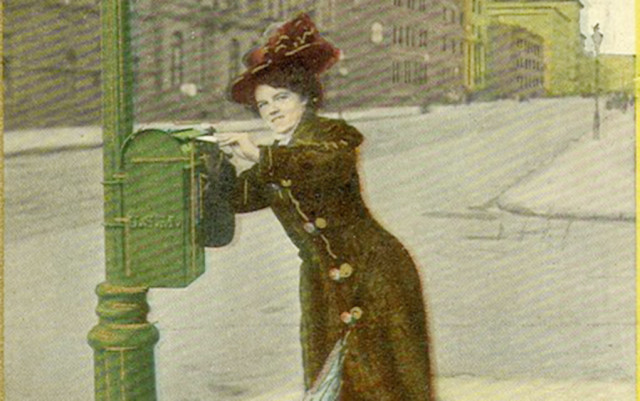
Longmont a pro-unity, pro-justice city
Thanks to City Council Member Polly Christensen, in December 2016 Longmont joined a host of cities across the United States, such as Eugene, Oregon; Seattle, Washington; and Cincinnati, Ohio, who have passed anti-hate resolutions. Such action is necessary in light of hate incidents toward racial and ethnic minorities and the LGBT community and even here, with the recent bomb threat to the Jewish Community Center in Boulder. A New York Times article, “U.S. Hate Crimes Surge 6%, Fueled by Attacks on Muslims” (Nov. 14, 2016), reports FBI data showing that attacks on American Muslims surged last year and drove an overall increase in hate crime against all groups.
Council Member Christensen’s “Resolution to Reaffirm our Constitutional Rights and Our Community Values” reads (in part) as follows: “The City Council of Longmont, Colorado, resolves to reaffirm our Constitutional rights and the rights of the Amendments to the Constitution. We further resolve to confirm our community values as a safe, healthy, respectful, and welcoming community with fair opportunities for all residents to live, work, and play in Longmont … The people of Longmont stand together to protect and respect each other, no matter what our differences.”
The vote for the resolution was 4-3, with Gabe Santos, Brian Bagley and Bonnie Finley voting against. The Longmont Times Call editorial, “Support Longmont ‘values’ resolution, if we can agree on its meaning” (Dec. 12, 2016), gave its support to the resolution.
Still, surprisingly, I could find no statement of this resolution anywhere on the City of Longmont’s website and no ensuing action. In these days of ICE deportations, this resolution needs to be posted as a “sign on the doorposts of thy house and on thy gates.” And Longmont should consider becoming a “sanctuary city.”
Edna Loehman/Longmont
Back to the muni future
I listened to the interview with Boulder Councilman Sam Weaver on KGNU’s Connections show on Friday, Jan. 13. It reminded me why Boulder began exploring municipalization in the first place. It all began several years ago when independent studies by a citizens’ group and by the City determined that we could reduce our carbon pollution emissions by 60 percent without raising rates.
We then realized that with a municipal utility we could have local control. We wouldn’t have to go through both Xcel and the Public Utilities Commission to simply get permission for things like buying and selling renewable energy with our neighbors, or enabling high-reliability zones around hospitals or high-tech facilities.
With a municipal utility, decisions about our energy future will be made by people we can have lunch with — City Council and Energy Advisory Board members.
It has also come to light that a municipal utility could unleash local entrepreneurs in the energy sector. Since that initial realization, the costs of renewables have plunged more rapidly than the original modeling anticipated. Thus the economic outlook for a municipal utility is looking better than ever.
I was proud to learn that since the early days of the muni exploration, the City has followed through on its commitment to reducing its contribution to carbon pollution by 34 percent between 2008 and 2015. This is particularly encouraging because focus on local action is more important now than it ever has been.
So I agree with what people are saying: It’s time to power forward with Boulder Light and Power. (For those interested in listening to the show in its entirety, it is archived on the KGNU website: kgnu.org/connections).
Alishaunia Cox/Boulder
Help Support Democracy
The Colorado State Senate will soon consider a bill to join the National Popular Vote Agreement. This bill would make Colorado part of a compact of states who agree to send all their electoral votes to the candidate who receives the largest popular vote for president. The compact will go into effect only if states representing a majority of the Electoral College join. We are 61 percent of the way there now, with 11 other states already on board.
It’s time for Colorado to step up and join this compact. Right now not everyone’s vote is equal in electing a president. That’s why, in 2016, the candidate who won the popular vote by nearly 3 million votes did not become president. It just makes sense that the person who gets the most votes should become president. This is called democracy. It’s a change whose time has come.
If the framers of our Constitution were around now they would favor women and people of color’s right to vote, they would oppose slavery and they would support electing our president by majority vote. The Electoral College was a good idea when it was created. But it is no longer necessary. The non-partisan League of Women Voters has studied this issue intensively and strongly supports this compact; believing the Electoral College should be abolished.
This week the National Popular Vote Agreement, SB 17-099, will be heard in committee at our State Capitol. Please contact the chair of the State, Veterans, and Military Affairs Committee, Ray Scott ([email protected] 303-866-3077), to voice your support for democracy.
Shari Malloy/Longmont
The time has come
It was actually really easy. And it felt so satisfying. Which is why I must consult the nearest mirror immediately and decide what I’m willing to sacrifice to fight for what the United States means — because many more, much heavier, well-oiled boots will soon drop.
Like others, I naively showed up at the Table Mesa Station just minutes before the bus I was to ride. Seeing the immense, caffeine-pounding crowd ahead of me, I knew I’d never get on. Wearing my backpack of things I wondered if you needed at a demonstration, it also became clear I wouldn’t meet my friends at another stop as we’d planned. I’d probably never make it to Denver. Then, magically, extra buses appeared, coordinated by RTD, and we gratefully climbed on.
Like much of the colorful, pussy-hat-wearing, sign-bearing, increasingly hopeful crowd meandering through helpful Denver Police Department cordons downtown, I’d never joined a demonstration. And I took pictures. A lot of pictures. As if I’d accomplished something. Maybe the successively larger counts of our numbers encouraged me. Later, eating the meal we self-consciously joked about as “bouge-y,” our group asked ourselves, without clear answers, what’s next?
But many U.S. communities don’t have Park-n-Rides. They don’t have buses. And certainly not local governments that will lift a paperclip to help demonstrators, let alone pay RTD drivers overtime to bail us out. And you’ve seen the president’s tweets in response to our protest against his bigotry, misogyny, disrespect for the rule of law and ethical convention, and paltry-orange, fascistic narcissism. That some administration official finally amended the president’s angry, hurt response to our protest against his rhetoric and so-called platform only means that one person near him feels obligated to acknowledge the First Amendment. But what about other Americans, in those other kinds of communities? What about the Department of Justice’s new leadership — how do you think they’ll “encourage” Denver P.D. and other departments through funding (or cuts) to threaten demonstrators? When will we need to commit to actual hardship, to putting our own safety on the line in order to live in a country that doesn’t deport lifelong, taxpaying, hardworking residents? Or register, which is to say, persecute, a particular religion? Or defund public education? The time to answer such questions has come.
Darin Graber/Boulder
Danish…wrong
Paul Danish missed the point by a wide margin in his column [Re: “Will Trump be the New Lincoln?” Feb. 2]. Mere attribution of statesman-like qualities via some quashed secession scenario hardly burnishes the appeal of the malevolent primate. And, more importantly, Danish barely broaches the question of why California is even considering secession? The third largest state by landmass with the highest gross state product, California is also a bastion of cultural diversity and home to forward-thinking business and tech innovators and entrepreneurs. It’s agricultural output, which depends on a migrant workforce, is a linchpin in our national food supply.
Sure, the Calexit idea had traction before Trump was ushered into office with the help of Putin’s hackers and Comey’s strategically timed leaks. But now the “hyperventilating progressives” are even more concerned. California, with its smog and gridlock, has made strenuous and successful efforts over decades to increase fuel efficiency standards and improve air quality. Having endured a drought likely influenced by climate change and perturbations of the jet stream, California continues moving to decarbonize its economy and embrace the renewable energy revolution now underway. Trump, his eyes firmly locked on the rearview mirror while championing his regressive worldview, is a dire threat. With the white-supremacist-Islamaphobe Bannon pulling the Donald’s strings, and oilman Tillerson set to guide foreign policy, the shape of things to come is odious. Not to mention climate change skeptic Pruitt who is likely to be named head of the EPA, if it’s not abolished outright.
In real terms Trump bears a much greater resemblance to Andrew Jackson than to Lincoln. The slave-owning, Constitution-flouting Jackson was an avowed enemy of indigenous Americans. Do some quick research on our seventh president. You’ll find his ghost, not Lincoln’s, hovering around the Oval Office. Danish closes with a revenge fantasy of Mad Dog Mattison and Trump snarkily crushing “the resistance” with the First Marine Division and a naval blockade. Sorry, Paul! The resistance to Trump and most everything he represents, as evidenced by the popular vote and massive marches from sea to shining sea and around the globe, is not confined to California. It’s in the DNA of patriotic Americans who are not conned by the isolationist avatar of angst, fear and greed.
Tim Gale/Boulder














